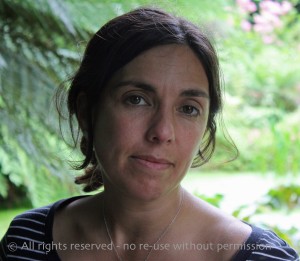Disability Hate Crime Motivation Survey
Over the last few years many disability hate crime campaigners have called for perpetrator analysis. I am one of those: I have been advocating for it since 2008, when I wrote the disability hate crime report, Getting Away With Murder, (for the UK Disabled People’s Council, Disability Now magazine and Scope). At the (British) Disability Hate Crime Network, run on email and Facebook, of which I am one of the co-ordinators, we believe that perpetrator analysis is important because without knowing more about why people commit this crime, it is very difficult to design programmes that prevent it from happening or dissuade offenders from committing similar crimes again in the future. I recommended it again in my book, Scapegoat: why we are failing disabled people, published by Portobello Books in 2011. The Equality and Human Rights Commission recommended it in its report, Hidden in Plain Sight, published in the same year. The government then promised to carry it out – which we joint coordinators at the Disability Hate Crime Network welcomed.
But it hasn’t happened, much to the frustration of many working on disability hate crime. It has been promised, through the National Offender Management Service and the College of Policing, but as far as we have been told, has not yet been published, despite many requests to see the data.
Simon Green, a co-ordinator of the Disability Hate Crime Network and I were talking about motivation recently. He was talking about the crimes against him, and how it was clear what the motivation was. So we came up with the notion: if the analysis of offenders is not going to be published, why don’t we ask victims and survivors of disability hate crime whether they know why the crime against them was committed? Often people who have experienced this crime have very useful thoughts to feed into our knowledge of the crime – but at the moment, that knowledge is not being tapped.
We decided to do a short snapshot survey of people who have experienced disability hate crime to ask them this question and a few other questions that might throw light on the crime – such as location of the crime, gender, age of the attacker and so on. We hope the results may throw some light on disability hate crime and possibly lead to a longer and more detailed study, if there is funding available.
Please do complete the survey – but only if you are living in the UK and have experienced disability hate crime. We hope that the results will tell us more about motivation – the missing part of the jigsaw. In so doing, it may aid prevention of this crime in the future.
I would like to thank all the co-ordinators for helpful comments on the design of the short survey. All identifying details will of course remain anonymous; only non-identifying details will be shared and once analysed the data will be destroyed.
Please go to our Facebook page to do the survey: Facebook.com/groups/disabilityhatecrimenetwork
Katharine Quarmby is a writer and journalist. Her non-fiction works include Scapegoat: why we are failing disabled people, which won the Ability Media International Award and No Place to Call Home: Inside the Real Lives of Gypsies and Travellers (shortlisted for the Bread and Roses award).
The original version of this article can be found at: https://katharinequarmby.wordpress.com/tag/disability-hate-crime/

